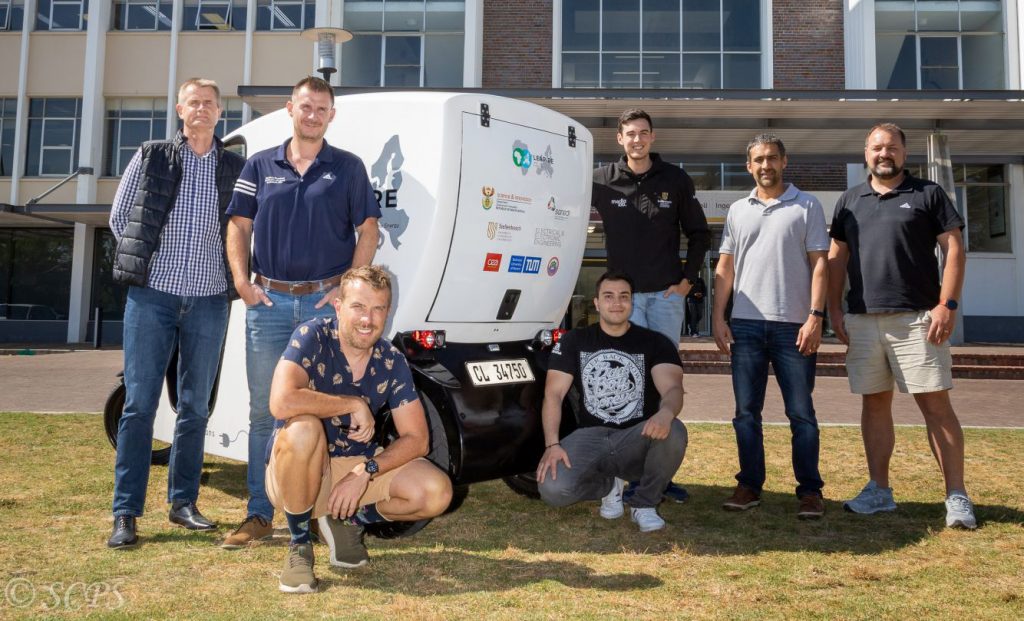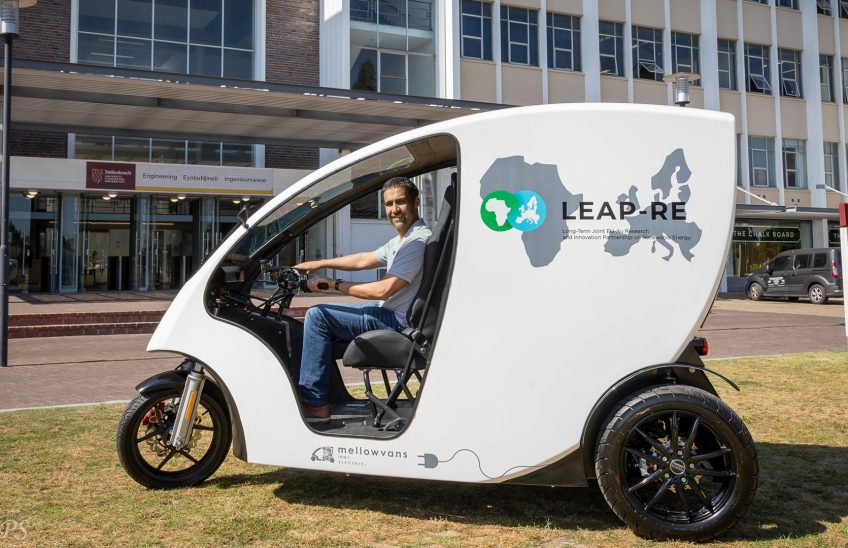The Department of Electrical and Electronic Engineering, under the guidance of Professor Thinus Booysen, is working on an off-grid electric vehicle (EV) charging solution. It’s funded as part of the Long-term Europe-Africa Partnership for Renewable Energy (LEAP-RE) project together with the Department of Science and Innovation (DSI).
The LEAP-RE programme is co-funded by the European Union (EU) under Horizon 2020. It aims to increase the use of renewable energy via a well-balanced set of research, demonstration, and technology transfer projects on both continents. The Technical University of Munich (TUM) is leading the project which aims to use second-life electric vehicle batteries as stationary storage in stand-alone solar-powered charging stations.

Background
Globally, the transport sector is rapidly moving towards electrification. Moreover, many countries, regions and cities have set dates to ban internal combustion engine (ICE) vehicles. It’s anticipated that 2023 will be a significant year for the EV industry following the European Union’s (EU) proposal in July this year to phase out diesel and petrol car sales by 2035.
Locally, transport is the second biggest contributor to the carbon intensity of Cape Town’s economy. This is exacerbated by urban sprawl, and the long distances freight has to travel over a country as large as South Africa.
Increased congestion and inefficiencies furthermore not only increase the city’s transport-related greenhouse gas emissions (GHGs), largely driving climate change, they worsen air quality and contribute to adverse health impacts on residents.

The off-grid EV charging solution
Unlike conventional vehicles, connected electric vehicles can help us to consider more than mobility for mobility’s sake. For example, systematic synergies can be leveraged between vehicles, energy grids, and ICT-based services. The goal is to understand these synergies in order to start co-developing sustainable solutions for agricultural value chains.
“In this project we will use second-life electric vehicle batteries as stationary storage for off-grid solar-powered charging stations for smaller electric vehicles, such as the SolChargE (aCar) Research Project and MellowVans”, explains
Prof T. Booysen
The intention is to use these charging stations in rural areas to provide clean and affordable energy for small-scale farmers. However, the station can also be used more generically as a clean off-grid power supply in under-serviced areas. The MellowVans vehicle, which also originates at the Department of Electrical and Electronic Engineering, will serve as a load to test the charging station in various use cases.
We will keep you updated as the project progresses, but in the meantime, visit https://acar-mobility.ftm.mw.tum.de/ to learn more.





